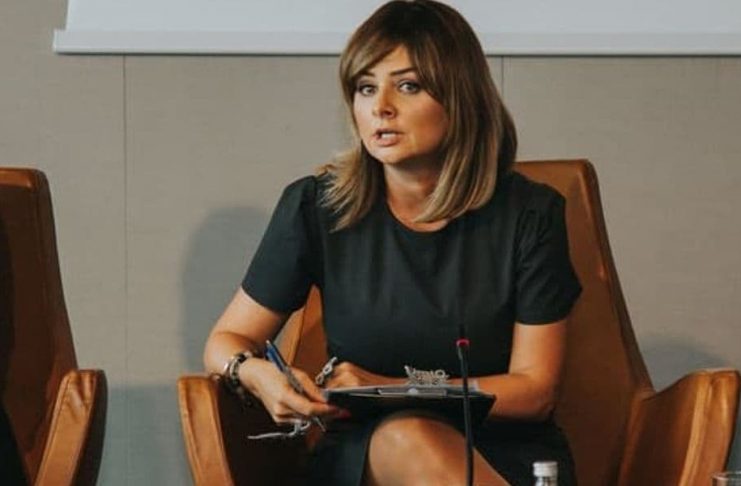Executive Director of the Center for Civic Education Daliborka Uljarevic said that the statements of Serbian President Aleksandar Vucic and Serbian Parliament Speaker Ivica Dacic after the adoption of the Srebrenica Resolution in the Montenegrin Parliament show “the level of their manipulativeness” because the resolution clearly emphasizes individual guilt for genocide and in one segment there is no equating of any nation as genocidal.
“It is their attempt to regain influence in Montenegro in order to make it what they did in Republika Srpska – to have that territory under control,” Uljarevic told H1, adding that since they are failing, “a rage of rage is coming.” and aggression from Serbia. ”
She also assessed that the representatives of the authorities in Serbia see Montenegro as an immature, unfinished state to which Serbia should regulate certain things within the system. He also points out that the situation in Montenegro – a pandemic, economic problems, with the growth of nationalist, clerical expression, create vulnerability that someone from the outside is trying to use.
He also believes that Vučić has a lot of problems, regardless of the fact that he puts in the background the failure to “negotiate a clear relationship with Kosovo” and that “behind everything is just a plan to look away from the problem” that Serbia cannot solve.
Uljarevic also said that she was not surprised that we reached this point in the relations between Serbia and Montenegro, although it seems very radical – for the simple reason that Vucic does not see Montenegro as a sovereign and independent state, but a territory over which he wants to have political and other related influence.
“And whenever he feels that this influence is not in proportion to what he has invested in different ways and in different actors, we come to strain relations,” he says.
She also assesses that the wave of criticism from Serbia after the adoption of the resolution “completely unjustly flooded Montenegro because the work of Montenegrin institutions is in question within the scope of their constitutional and legal authority.”
Commenting on Vučić's answer that they interfered in Serbian affairs in Montenegro because they are discussing Srebrenica, Uljarević states that Srebrenica is not an issue reserved only for discussion in Serbia. He reminds that other parliaments in Europe also discussed it, and the EP passed a resolution condemning the genocide in Srebrenica, which was also ratified by Montenegro, but there was no reaction from Serbia at that time.
Regarding the inscription of the tabloids from Serbia close to the authorities about Montenegro, he says that their down-to-earthness should not serve the pride of those they support, but also that it should work counterproductively towards the projected goals in Montenegro.
“Most of Montenegro is appalled by this, and that is something that reminded us how much Montenegrin institutions are not respected by the Serbian authorities and the media, and if institutions are not respected, then Montenegro is not respected either,” Uljarevic said.
Regarding the statements of church dignitaries, Patriarch Porphyry and Metropolitan Ioannicius, who also criticized the adoption of the Resolution, Uljarevic estimates that “they were quite moved by the previous period in which church dignitaries took an inappropriately important place in the socio-political life of Montenegro.”
“It is as if they forgot that Montenegro is defined by the constitution as a civil state,” said Uljarevic, adding that it would be more useful for the Serbian Orthodox Church for dignitaries to deal more with religious issues.
“I hope that they will understand that their interventions do not have the right effect, and they will not contribute to their positioning as people of integrity,” he says.
